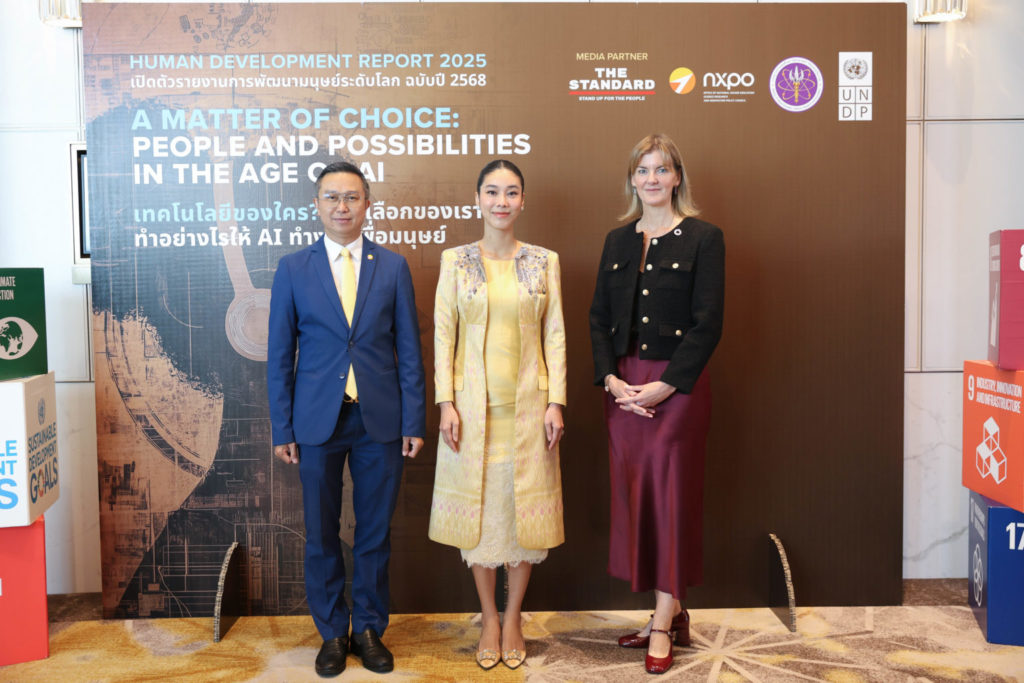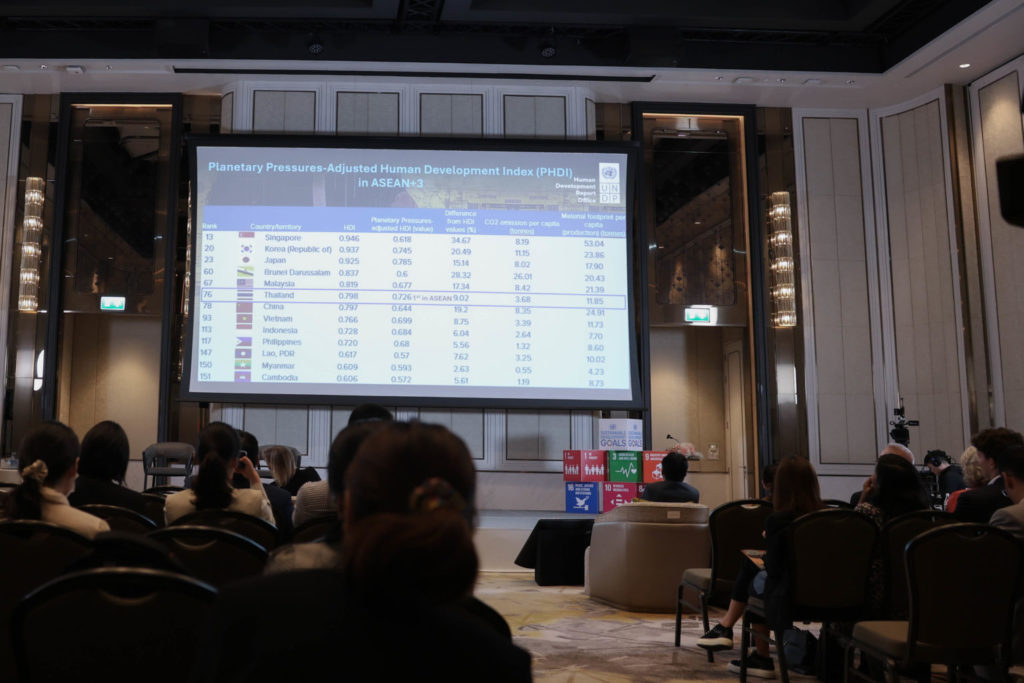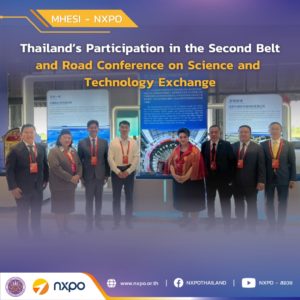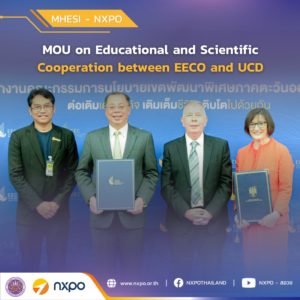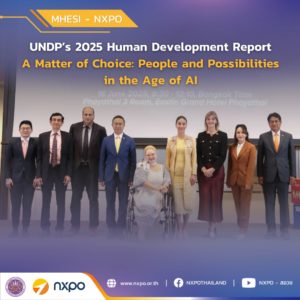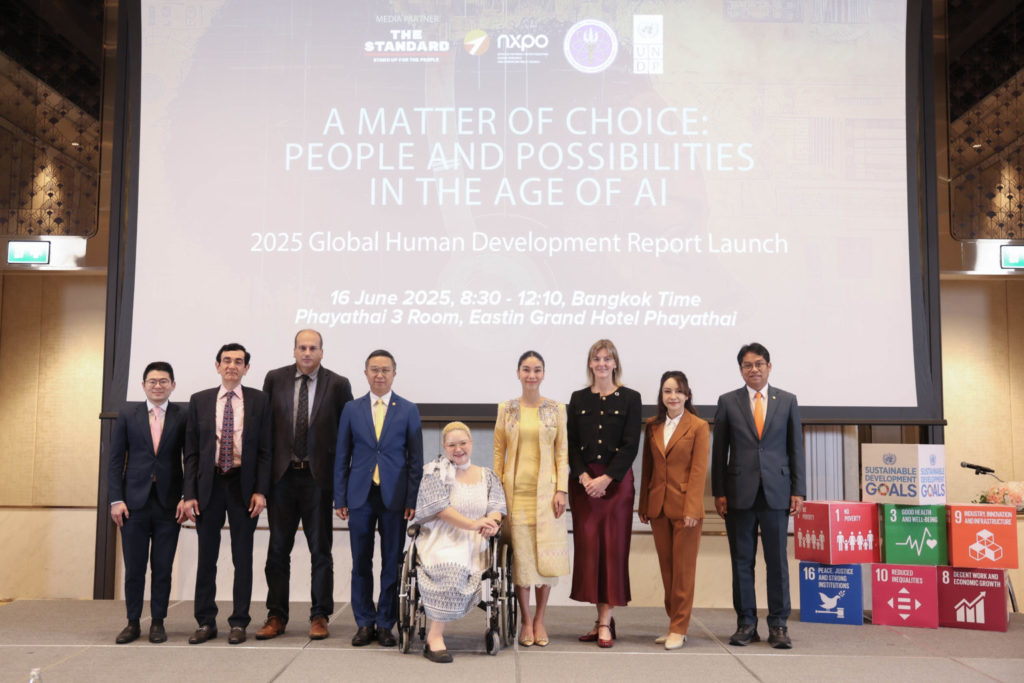
On 16 June 2025, NXPO, in collaboration with the United Nations Development Programme (UNDP), hosted the launch of the 2025 Human Development Report. Centered on the theme of artificial intelligence (AI), the event was presided over by Ms. Suchada Zhang Thaensap, Secretary to Minister of Higher Education, Science, Research and Innovation (MHESI).
The report reveals that the global Human Development Index (HDI) has dropped to its lowest point in 35 years, while inequality between nations has widened for the fourth consecutive year. This underscores a crucial moment for the international community to forge new development pathways, with AI identified as a transformative force capable of creating equal opportunities for all — provided it is harnessed responsibly to avoid deepening inequality. In this report, Thailand is placed 76th out of 193 countries, ranking fourth within ASEAN after Singapore, Brunei, and Malaysia. The report highlights Thailand’s notable strengths in gender equality and its leadership in sustainable development practices within the region. The report also underscores AI’s growing role as a vital tool in enhancing productivity, increasing competitiveness, and expanding opportunities in areas such as healthcare, education, and environmental management. UNDP Thailand has advanced AI initiatives through three strategic pillars: 1) AI for productivity and competitiveness enhancement, 2) AI for social inclusion, ensuring no one is left behind, and 3) AI for strengthening social and economic resilience.
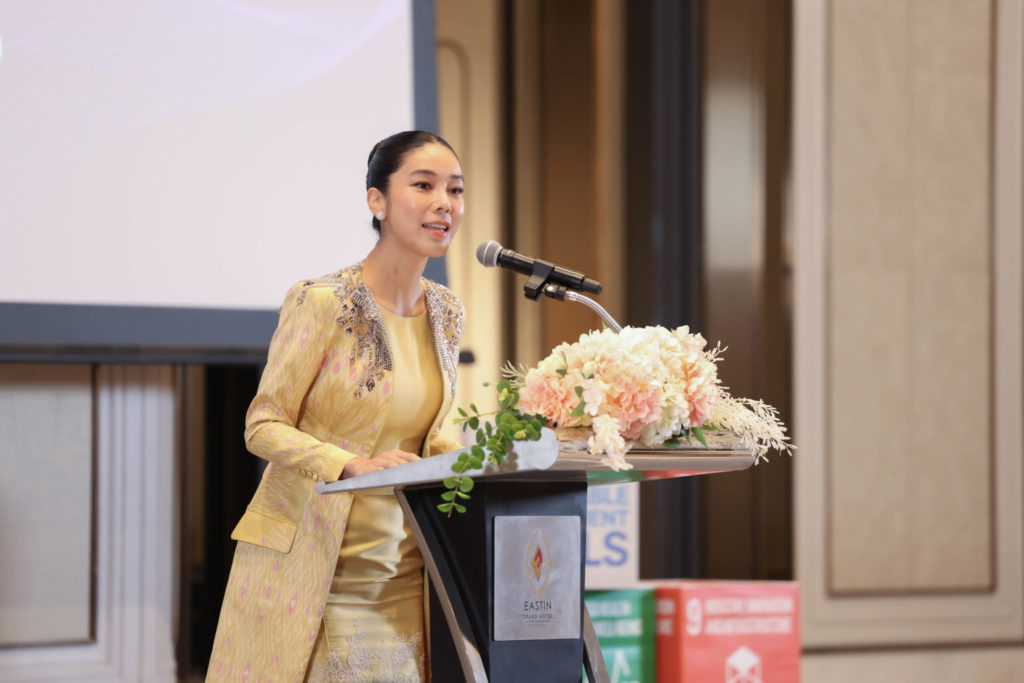
In her keynote address, Ms. Suchada acknowledged that while Thailand is moving forward in AI adoption, several challenges remain — including a shortage of skilled AI talent, slow regulatory development, high implementation costs for large-scale systems, and geopolitical dynamics where AI leadership is concentrated in the United States and China. Meanwhile, concerns are growing over job displacement driven by automation. Between 2025 and 2030, the fastest-growing job roles are expected to include big data analysts, AI engineers, machine learning engineers, software developers, cybersecurity specialists, and renewable energy engineers — while positions such as bank tellers, accountants, call center agents, cashiers, and retail frontline staff are projected to decline rapidly.
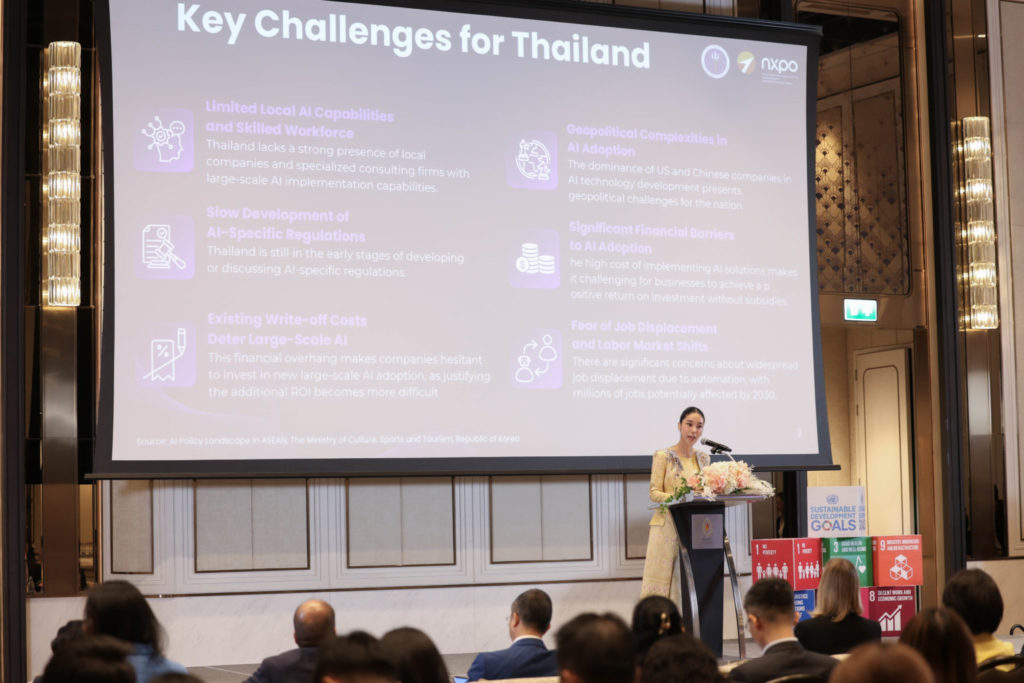
Ms. Suchada outlined MHESI’s efforts to transform Thailand’s higher education system through a triple-helix framework where the government acts as policy enabler, industry drives workforce demand, and academia develops demand-driven curricula. Key initiatives include:
- The Higher Education Sandbox Project, with an example of Chulalongkorn University’s computer engineering and digital technology program. This program uses a block course system and industry internships to enable faster graduation and better alignment with labor market needs. 33% of first-year students in this program outperformed third-year students in conventional programs.
- The National Credit Bank Project, a platform for accumulating academic credits from formal, non-formal, and experiential learning. It promotes lifelong learning and recognizes competencies acquired outside traditional classrooms.
- The GenNX Model, an intensive workforce training program that links job seekers with employers seeking skilled labor for immediate hiring.
Additionally, MHESI has partnered with Microsoft to launch the “AI for All” initiative, aimed at improving AI literacy among Thais of all ages through curriculum development, teacher training, online learning platforms, and workforce upskilling programs, ensuring the country is prepared for a fair and sustainable AI-driven future.
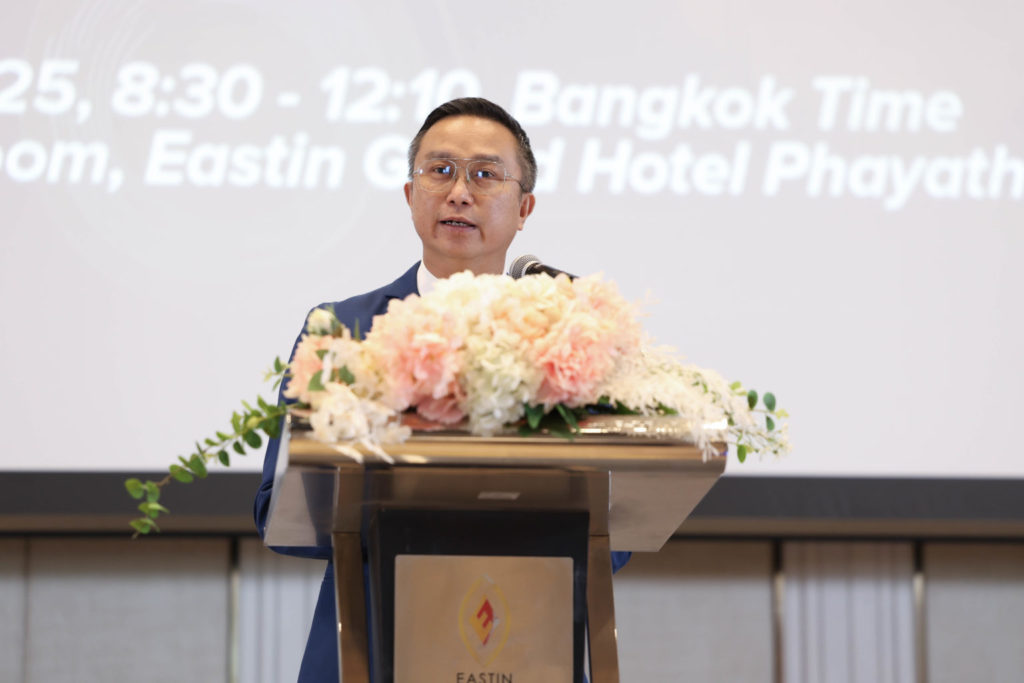
Dr. Surachai Sathitkunarat, President of NXPO, emphasized that navigating the country through today’s multifaceted challenges — from rapid technological shifts and geopolitical uncertainty to environmental crises — demands policy innovation as a key driver for sustainable transformation. NXPO has accelerated the development of new policy mechanisms and tools such as Design Thinking, Strategic Foresight, Regulatory Sandbox, Policy Accelerator, and multi-stakeholder engagement platforms, enabling Thailand’s policy systems to respond more swiftly and effectively to changing circumstances.
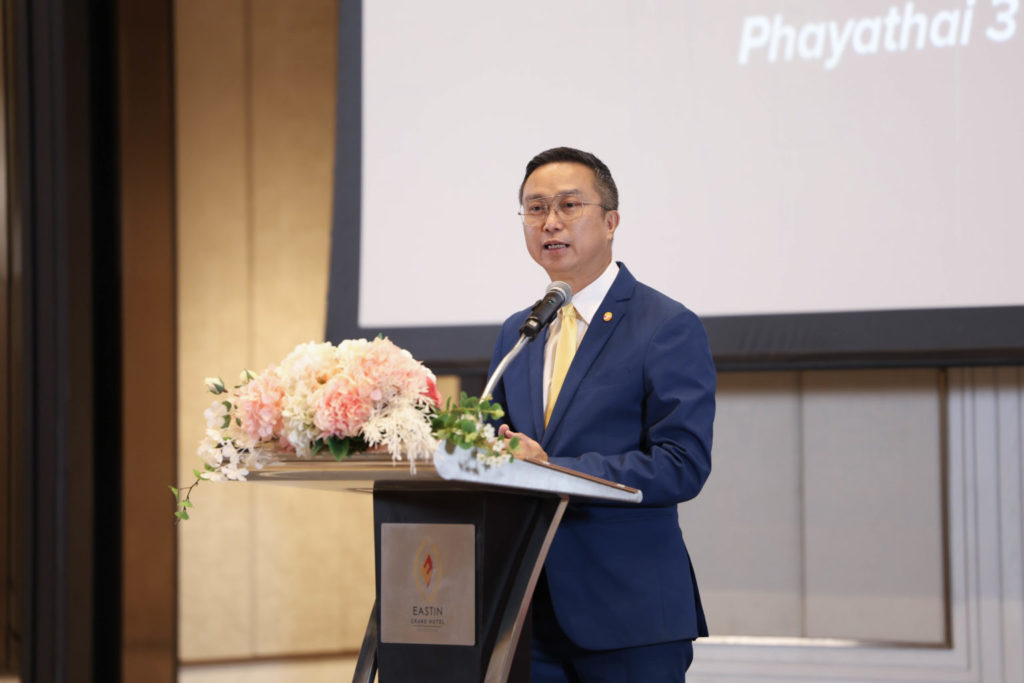
He also reaffirmed the importance of AI as a national development enabler. Together with the Ministry of Digital Economy and Society, MHESI has formulated the Thailand National AI Strategy (2022–2027), anchored on five strategic pillars: 1) Establishing ethical, legal, and regulatory frameworks for AI, 2) Developing sustainable AI infrastructure, 3) Advancing AI-related human capital and education, 4) Promoting AI innovation and technology, and 5) Encouraging AI adoption across all sectors.
Dr. Surachai reiterated that the success of this strategy hinges on integrated, cross-sectoral collaboration, secure data-sharing frameworks, and the coordinated use of national resources and expertise to deliver inclusive, smart public services accessible to all Thais — making AI a driver of equitable, inclusive growth for Thailand’s future.
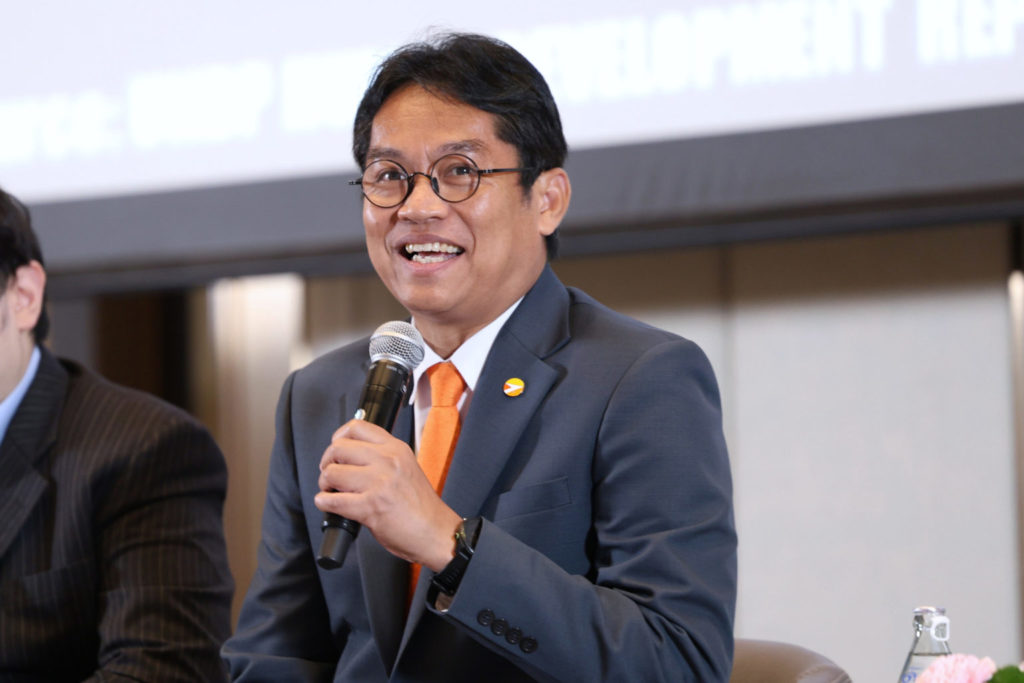
Prof. Dr. Surin Khomfoi, Vice President of NXPO, took part in the panel discussion “Thailand’s Choices: Using AI to Drive Human-Centric Sustainable Development”, where he noted that Thailand faces serious educational challenges. These include a declining school-age population and a continuous fall in secondary and higher education enrollment rates over the past decade. A critical concern is that Thailand’s average years of schooling remain at just nine years, well below the average for countries with very high HDI rankings — a situation requiring urgent intervention.
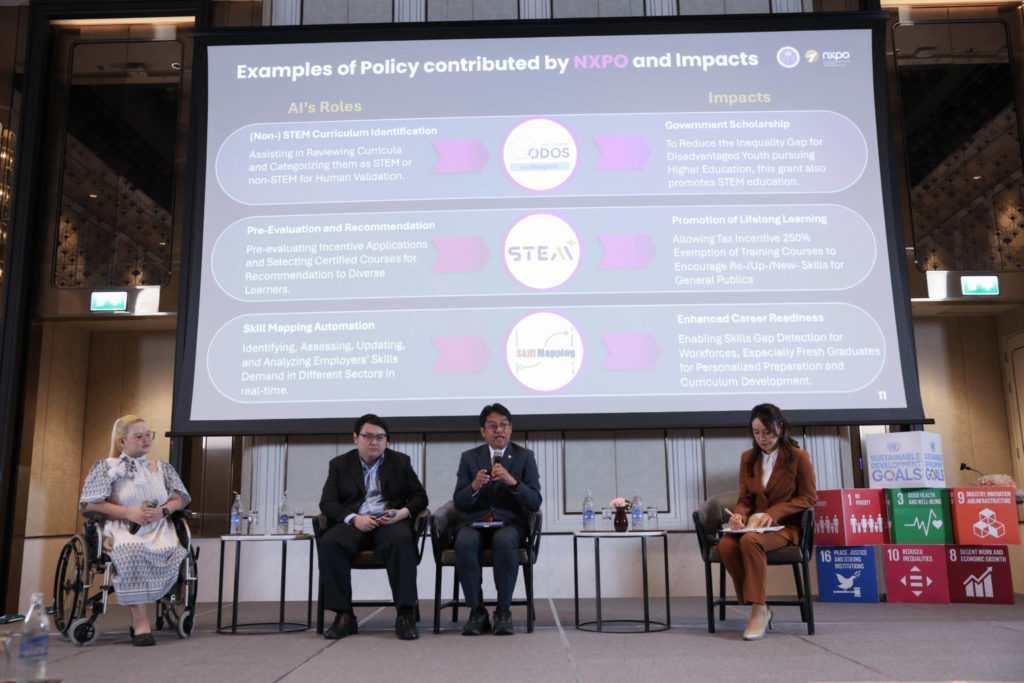
To address this, Prof. Surin outlined NXPO’s collaboration with the Office of the Permanent Secretary for MHESI and the Council of University Presidents of Thailand (CUPT) to integrate AI into higher education through initiatives such as:
- University admissions via the MyTCAS digital platform, which uses AI to match students with academic programs aligned to their aptitudes.
- Curriculum accreditation through the AI-powered CISA system, reducing the approval period from 120 days to 30 days, expediting student loan processes.
- Personalized career guidance, leveraging aptitude assessments and skill mapping to help students navigate clear, well-matched career pathways and support the development of market-aligned academic programs.
Prof. Surin also highlighted the use of AI in NXPO’s policy work such as categorizing academic programs into STEM and non-STEM fields for targeted scholarship allocation, assessing and recommending lifelong learning programs, and connecting workforce skill gaps to employer demand through the real-time matching platform on STEMPlus. “Our vision is to use AI to enhance education system efficiency while safeguarding its human-centric essence. Technology should empower people, not replace them. It must open up opportunities for all youth — particularly vulnerable groups — to access higher education, while transforming learning models to be more flexible and responsive to the evolving job market,” Prof. Surin concluded.
